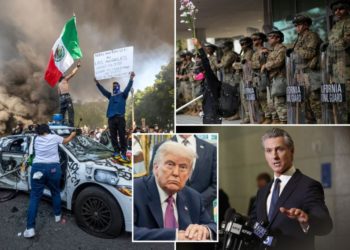Iran’s foreign minister, Abbas Araghchi, was scheduled to meet with top diplomats from Britain, France and Germany on Friday in Geneva, in a last-ditch effort to avert a dangerous escalation in the weeklong conflict between Israel and Iran.
With President Trump setting a new deadline of two weeks before he decides whether to join Israel’s aerial campaign against military and nuclear sites in Iran, the European diplomats will deliver an urgent message to Mr. Araghchi that his government must make significant concessions in its nuclear program.
Expectations for the meeting were restrained, given the wide gaps between Iran and the United States in their now-suspended negotiations. Yet Mr. Trump’s reprieve, after a week in which he seemed to be marching inexorably toward war, buoyed hopes somewhat, suggesting that there was still time to act.
“Based on the fact that there’s a substantial chance of negotiations that may or may not take place with Iran in the near future,” the president said in a statement on Thursday, “I will make my decision whether or not to go within the next two weeks.”
Mr. Trump denied reports that he had already authorized an attack on Iran but withheld final approval to see if Iran’s leaders acceded to his demand that they abandon the country’s nuclear program.
Among the issues on the table in Geneva, officials from several countries said, are giving outside inspectors unfettered access to Iran’s nuclear facilities, as well as cutting its stockpile of ballistic missiles, which it has fired against Israel in retaliation for Israeli strikes on military bases and nuclear installations.
Those barrages continued on Thursday night. Israel struck the headquarters of the S.P.N.D., an advanced research institute connected to Iran’s nuclear program, the Israeli military said. An Iranian missile hit a residential street in a city in southern Israel, leaving a large crater, according to Israel’s emergency services.
Britain’s foreign secretary, David Lammy, met on Thursday at the White House with Secretary of State Marco Rubio and Mr. Trump’s Middle East envoy, Steve Witkoff, to urge a diplomatic solution before the Geneva meeting.
“We are determined that Iran must never have a nuclear weapon,” Mr. Lammy said in a statement. “We discussed how Iran must make a deal to avoid a deepening conflict. A window now exists within the next two weeks to achieve a diplomatic solution.”
Britain, France and Germany are reconstituting a diplomatic group, known as the E3, which conducted on-again, off-again talks with Iran in the early 2000s and again before Iran signed a nuclear agreement with the West in 2015. They will joined by the foreign
In Mr. Araghchi, the Iranian minister, the Europeans will confront a seasoned negotiator who hammered out the framework of that deal in secret talks with emissaries from the Obama administration in 2013. Mr. Trump withdrew from the agreement, known as the Joint Comprehensive Plan of Action, in 2018.
Still, the Europeans are, by all accounts, on the margins of a drama that pits Israel’s prime minister, Benjamin Netanyahu, and potentially Mr. Trump, against Iran’s leaders, led by Ayatollah Ali Khamenei.
Mark Landler is the London bureau chief of The Times, covering the United Kingdom, as well as American foreign policy in Europe, Asia and the Middle East. He has been a journalist for more than three decades.
The post Iran’s Foreign Minister to Meet With European Counterparts Amid War Fears appeared first on New York Times.




